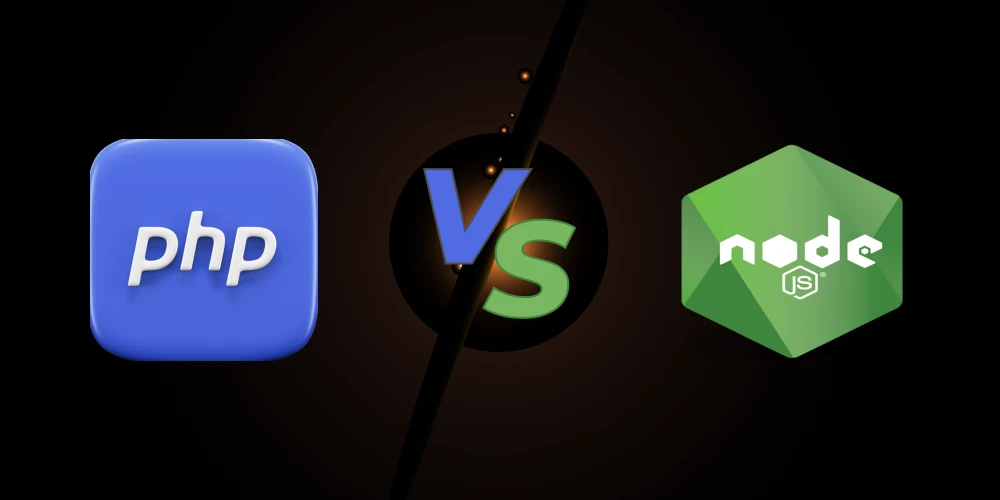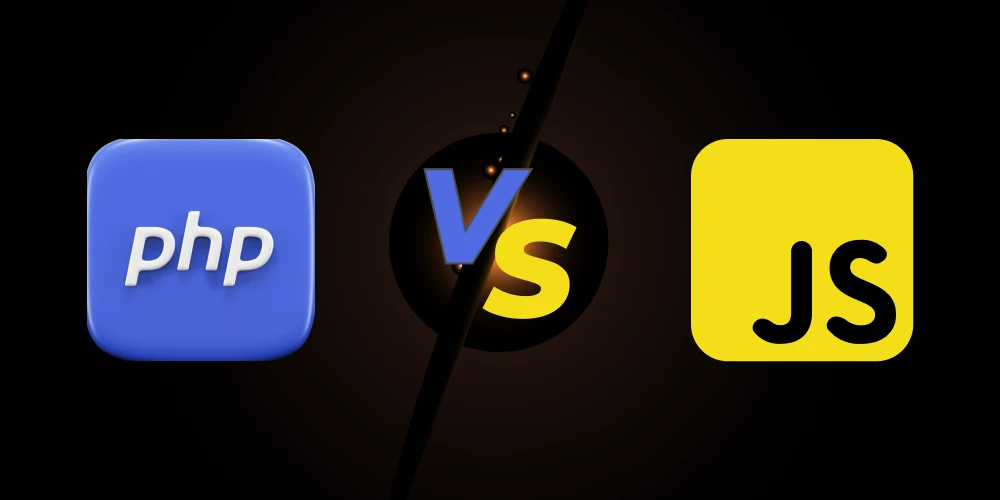PHP has taken the development by storm. It has become one of the most used programming languages as it speeds up web development and also along with its pragmatic use, developers are speedily leaning towards it.
In this blog, we look at the best PHP frameworks you can use for your web development project.
Why Should You Use PHP frameworks?
PHP offers a structured, efficient, and well-organized way to developers to create web applications that save time and effort. They come with pre-built modules, libraries, and best practices that can help developers not to do the repetitive tasks and focus on core tasks like building robust applications. Here are some of the reasons as to why you should use popular backend frameworks.
Faster development
PHP frameworks offer built-in tools, templating engines, and automation features like code generation and database migrations, reducing development time significantly.
Improved Code Organization
Most PHP frameworks follow the MVC (Model-View-Controller) architecture, which separates business logic from presentation, making the code more readable, scalable, and maintainable.
Enhanced Security
Security vulnerabilities like SQL injection, CSRF, and XSS attacks are common in web applications. PHP frameworks include built-in security features to protect against these threats, ensuring safer development.
Database Management Made Easy
With ORM (Object-Relational Mapping) and database abstraction layers, frameworks simplify database interactions, allowing developers to perform CRUD operations efficiently without writing complex SQL queries.
Reusability & Scalability
PHP frameworks encourage modular development, enabling code reuse and simplifying application scaling as your project grows. This makes frameworks ideal for both small and enterprise-level applications.
Now you have understood it, let’s quickly move to the list of the best PHP frameworks.
Best PHP Frameworks For Developers
Below is the breakdown of PHP frameworks that provide key insights and details to understand each of them better.
Laravel

Laravel is one of the topmost popular PHP frameworks that is known for its syntax, developer-friendly tools, along with strong and active community. It plays a major role in simplifying complex coding tasks like authentication, routing, and caching, making it ideal for scalable applications.
Laravel comes with built-in ORM, job queues, and API support that fulfils the needs of modern-day web development. Not only this, but its Blade template engine and Artisan CLI have proven to be effective for streamlining web development.
Now, let’s talk about its key features:
- It has eloquent ORM which simplifies intuitive ActiveRecord implementation for database management.
- As mentioned above, its lightweight Blade Template engine is best in creating dynamic views for websites.
- The reason for being one of the best PHP frameworks is its built-in authentication and authorization that simplifies user management with pre-built scaffolding.
- It automates repetitive tasks such as database migrations, seeding, and testing using Artisan CLI.
- By using Laravel in web development, it significantly improves performance by handling background tasks asynchronously.
- It supports PHPUnit integration and feature testing that are top comprehensive tools of Laravel.
Pros and Cons of Laravel
Below are the pros and cons of Laravel:
| Pros | Cons |
|---|---|
| Elegant syntax makes coding smoother | Can be slower than lightweight frameworks |
| Built-in features like authentication, routing, and caching | Might feel excessive for simple applications |
| Strong security against SQL injection, CSRF, and XSS | Can be complex for beginners due to advanced features |
| Follows MVC architecture for better code structure | Frequent updates may cause version conflicts |
| Large community with plenty of resources and support | Requires good hosting for optimal performance |
Make your web development project scale
Symfony

Another popular framework we have in list in Symfony. It is a robust framework that is designed to develop high-performing applications or websites. It has modular architecture that offers reusable components, making it best among developers. One thing about Symfony is that it follows strict coding standards which make it the best PHP framework for working on enterprise projects.
It’s event-driven architecture, along with a dependency injection system, provides flexibility in application development. Another highlighting factor about this PHP framework is that it also supports multiple databases, making it versatile for complex solutions.
Let’s talk about its key features now:
- It has a modular structure and almost 50 components can be reused independently.
- For building seamless UI elements, Symfony offers Twig Templating Engine that is fast and secure.
- Symfony has Event Dispatcher & Dependency Injection which helps to enhance extensibility and manage dependencies.
- It comes with built-in authentication, authorization, and CSRF protection which translates to having robust security mechanisms.
- It provides multi database support which means that it works with MySQL, PostgreSQL, SQLite, and more.
Pros and Cons of Symfony
Below are the pros and cons of Symfony:
| Pros | Cons |
|---|---|
| Highly scalable for complex applications | Steeper learning curve for beginners |
| Follows strict MVC architecture | Slower compared to lightweight frameworks |
| Large and active community support | Requires more initial setup |
| Reusable components for faster development | Can be overkill for small projects |
| Robust security features | Performance tuning may be needed |
| Built-in debugging and profiling tools | Some components have a high memory footprint |
| Regular updates and long-term support (LTS) | Advanced features require more configuration |
| Supports multiple databases and ORMs | Not as beginner-friendly as Laravel |
| Ideal for enterprise-level applications | More dependencies can lead to complex maintenance |
| Well-documented with extensive learning resources | Requires experienced developers for optimization |
Yii 2
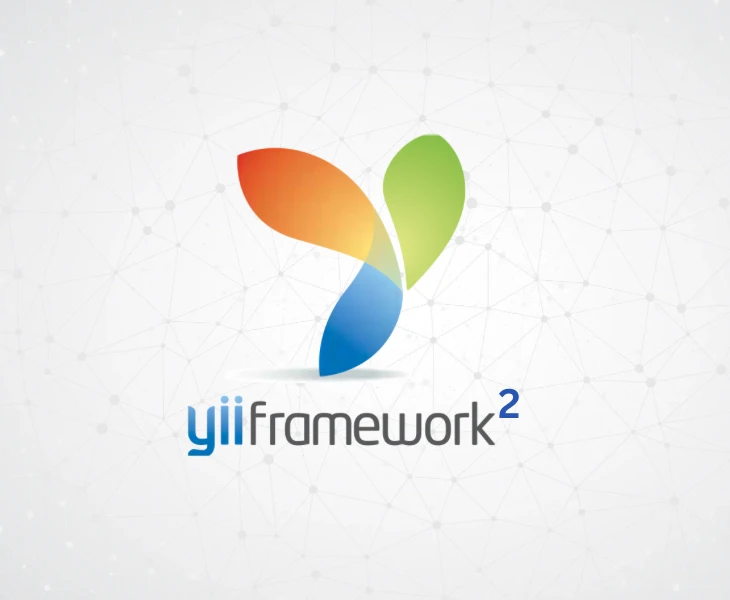
It is a high-performing PHP framework that focuses on speed and efficiency. Therefore, if you want to make large scale or enterprise level projects, then Yii 2 is the best choice to make. If we talk about its principle, then it follows the DRY principle (Don’t Repeat Yourself) and as it comes with built-in tools it supports rapid development. In addition to this, Yii 2 frameworks features an intuitive ActiveRecord ORM and a powerful caching system. It also includes Gii, which is a code-generation tool that speeds up the CRUD operations.
Now let’s discuss key features of Yii 2:
- It follows lazy loading that enhances performance by loading components only when needed.
- It ensures clean code organization using MVC Architecture.
- Automating the tasks is just like a breeze in Yii 2 as it automates the coding and repetitive tasks by usings its Gii code generator that also aids in speedy web development.
- It simplifies front-end interactions by implementing AJAX & jQuery Integration.
- By using it for web development, it enhances permissions by offering Advanced permission management system using RBAC (Role-Based Access Control).
Pros and Cons of Yii 2
The pros and cons of Yii 2 are as follows:
| Pros | Cons |
|---|---|
| High performance with fast loading times | Steep learning curve for beginners |
| Built-in security features like authentication & RBAC | Less popular compared to Laravel & Symfony |
| Easy to extend with modular components | Lacks a large ecosystem of third-party packages |
| Supports both relational & NoSQL databases | Documentation can be complex for advanced features |
| Efficient caching for better scalability | Smaller community compared to top PHP frameworks |
CakePHP
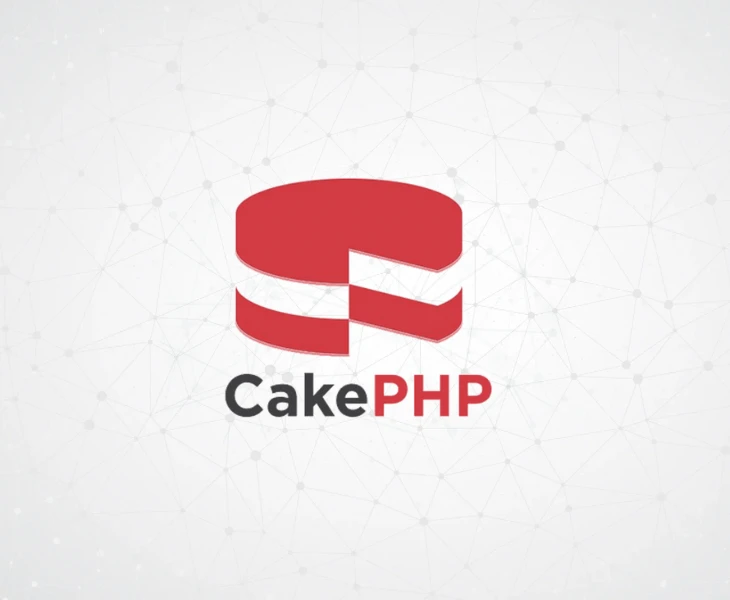
It is one of the best PHP frameworks known for rapid development that follows the convention-over-configuration paradigm. Following this paradigm results in quick and faster development along with intuitiveness. It has built-in security, ORM, and validations tools that reduce the need for third-party applications and integrations.
In addition to that, it supports flexible caching – so if you have a high–traffic website then using this framework for web development would be the best approach.
For developers, it offers ease of use, especially those who want a structure yet lightweight framework, which makes it a popular choice among developers.
Now, let’s talk about the key features of CakePHP.
- As mentioned above, it uses the principle of convention over configuration that speeds up development by reducing boilerplate code.
- It has strong built-in security features such as CSRF protection, XSS prevention, and input validation.
- In addition to that, it simplifies database interactions with an ActiveRecord-style pattern.
- With its key features like scaffolding and code generation, it automates CRUD operations seamlessly.
Pros and Cons of CakePHP
Below are the pros and cons of CakePHP:
| Pros | Cons |
|---|---|
| Rapid development with built-in CRUD features | Slower performance compared to lightweight frameworks |
| Convention over configuration reduces setup time | Requires strict adherence to conventions |
| Strong security features like input validation & CSRF protection | Less flexibility compared to more modular frameworks |
| Built-in ORM for easy database interactions | Smaller community and fewer third-party packages |
| Supports modern PHP features and tools | Learning curve due to its unique structure |
Read more on PHP vs Node.js
CodeIgniter
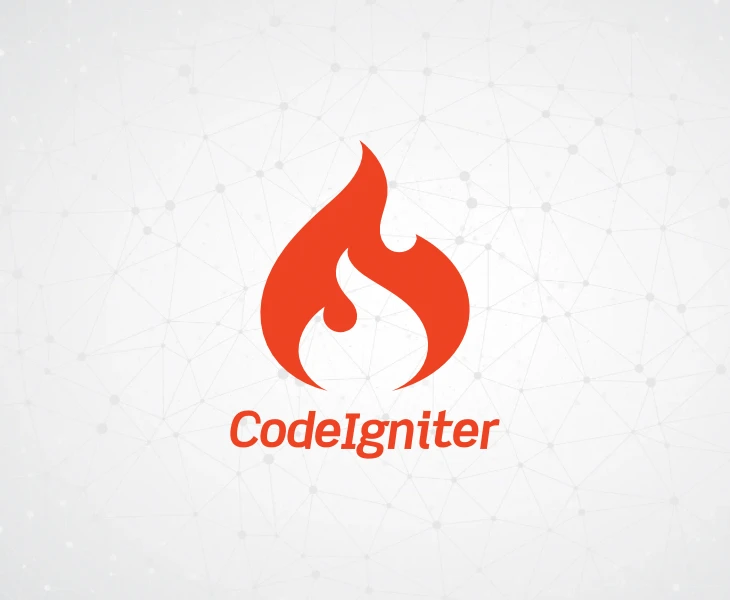
Another we have on the list of most popular PHP frameworks is CodeIngiter that is lightweight and a high-speed framework. It offers a small footprint that makes the deployment and maintenance of the framework easier.
With its built-in security and caching features, it ensures faster execution (hence timesaving). With the MVC support and flexibility in the architecture of CodeIgniter, it has become a great choice for developers that look for simple yet powerful framework.
Now let’s look at some of its key features:
- It has a small footprint of 1.2 MB that makes the deployment and maintenance of this PHP framework feel like a breeze.
- It gives deployers flexibility in structuring applications using MVC and non-MVC support.
- In addition to that, it has exceptional performance with minimal overhead.
- It comes with robust security tools that provide input filtering, CSRF protection, and encryption.
Pros and Cons of CodeIgniter
Below are the pros and cons of CodeIgniter:
| Pros | Cons |
|---|---|
| Lightweight and fast performance | Lacks built-in ORM, requiring manual query writing |
| Simple and easy to learn for beginners | Limited built-in security features compared to modern frameworks |
| Minimal configuration required | Less modular compared to Laravel or Symfony |
| Excellent documentation and active community | No built-in support for dependency injection |
| Flexible architecture allows custom development | Lacks strict MVC enforcement |
Zend Framework (Laminas Project)
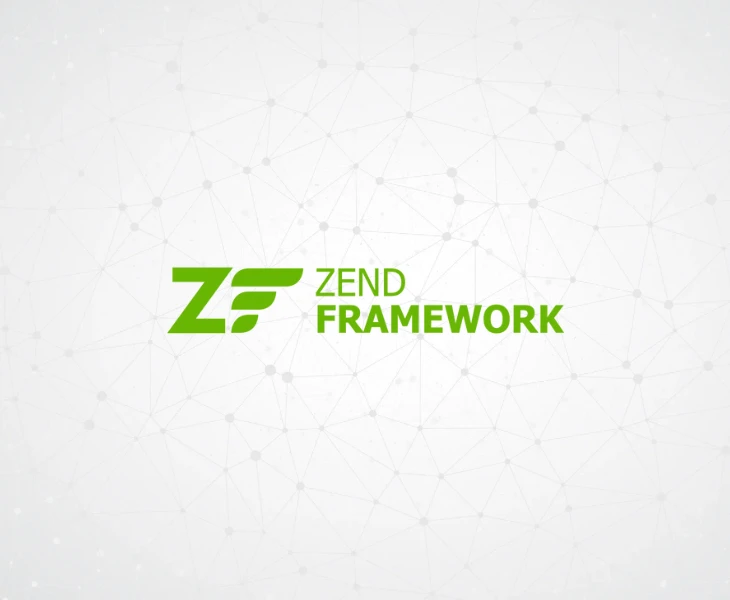
Another one of the top PHP frameworks is Zend framework that is now currently known as Laminas. To tell more about it, it is an enterprise0grade PHP framework that is designed for developing complex and scalable applications. What it does is that it follows an object-oriented approach and features a component-based structure. With features like robust security and middleware support, it has become a top choice for enterprise-level applications.
If you are a developer who works on high customization and need long-term support, then Zend framework is best for you.
Take a look at the features of Zend Framework below.
- It provides middleware support that is ideal for API development.
- Zend framework is highly customizable by leveraging its modular architecture that allows developers to use components independently.
- It has enterprise-grade security providing encryption, authentication, and input validation.
- It also provides multi database support i.e., it works seamlessly well with MySQL, SQLite, PostgreSQL, and others.
Pros and Cons of Zend Framework
Below are the pros and cons of Zend framework:
| Pros | Cons |
|---|---|
| Highly customizable and modular | Steeper learning curve for beginners |
| Enterprise-ready with strong security features | Can be slower compared to lightweight frameworks |
| Follows strict PHP-FIG standards for clean code | Requires more configuration and setup |
| Large community and extensive documentation | Heavier compared to alternatives like CodeIgniter |
| Strong support for enterprise applications | Official support has shifted to Laminas, requiring migration |
Phalcon

On the number 7, we have Phalcon which is one of the top PHP frameworks. It is a high-performance framework built in C that makes it the fastest framework available. Phalcon is different from traditional PHP frameworks by the fact that it is compiled as a PHP extension which reduces execution time.
It provides a full-stack feature set that includes ORM, templating engine, and caching. Its low resource consumption makes it ideal for applications requiring speed and efficiency.
Now let’s talk about the features of Phalcon which are mentioned below.
- It has blazing-fast performance that makes it one of the fastest PHP frameworks due to its C-based core.
- It is optimized to consume fewer system resources as it is extremely memory efficient.
- It has built-in ORM and templating engine that supports database interactions and dynamic content generation.
- It is best for developing scalable APIs.
Pros and Cons of Phalcon
The pros and cons of Phalcon are below:
| Pros | Cons |
|---|---|
| Extremely fast due to C-extension implementation | Requires root access for installation |
| Low resource consumption | Smaller community compared to other PHP frameworks |
| Built-in security features | Less flexible for shared hosting environments |
| Supports ORM, caching, and templating out of the box | Learning curve due to unique architecture |
| Ideal for high-performance applications | Limited third-party integrations |
Slim Framework
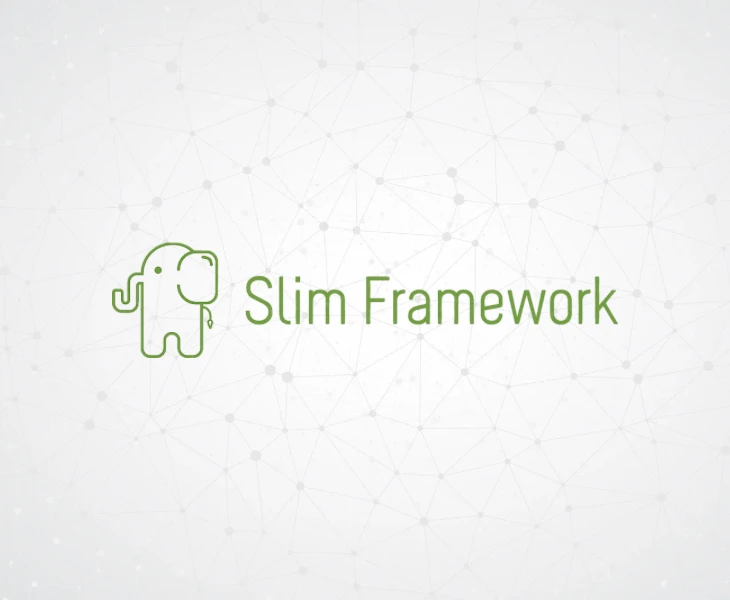
It is a lightweight PHP micro-framework that focuses on simplicity and efficiency. The main purpose of using Slim framework is to develop APIs, work on web services, and create small-scale applications.
This PHP API framework provides essential features like routing, middleware support, and dependency injection while keeping the framework minimal. Its flexibility and fast execution make it a preferred choice for RESTful API development.
Now let’s look at the key features of the Slim framework.
- It is minimalistic and fast with simple architecture and low overhead.
- It has built-in middleware that supports authentication, logging, and caching.
- It provides a flexible routing system that handles RESTful API requests with ease.
- It enhances modularity and maintainability using dependency injection support.
Pros and Cons of Slim Framework
The pros and cons of the framework are as mentioned below.
| Pros | Cons |
|---|---|
| Lightweight and minimalistic | Lacks built-in ORM and templating engine |
| Fast performance due to minimal overhead | Not ideal for large-scale applications |
| Easy to learn and use | Requires additional libraries for full-stack development |
| Great for building RESTful APIs | Smaller community compared to Laravel or Symfony |
| Flexible middleware support | Less structured compared to full-fledged frameworks |
FuelPHP
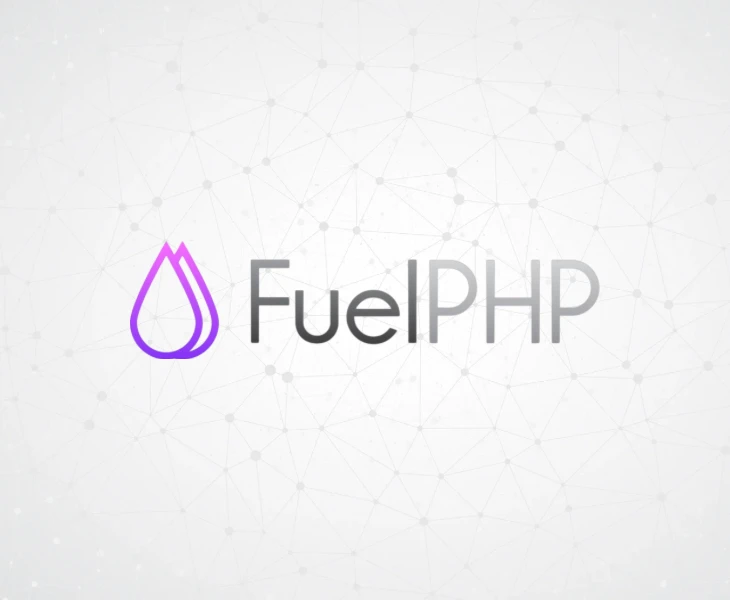
It is a highly modular and flexible framework as it supports two types of frameworks i.e., MVC and HMVC (Hierarchical MVC) architecture.
Its security-first approach makes it a great choice for applications requiring strong data protection. FuelPHP comes with built-in authentication, ORM, and a CLI utility for automating tasks. It is known for its scalability and ease of use. Now if you’re wondering about the key features of FuelPHP that make it distinctive from other frameworks, let’s take a look below.
- It follows HMVC that enhaces modularity and scalability.
- It always follows security first approach as it comes with in-built protection against SQL injection, CSRF, and XSS.
- It simplifies database interactions by leveraging its flexible ORM.
Pros and Cons of FuelPHP
Below are the pros and cos of Fuel PHP:
| Pros | Cons |
|---|---|
| HMVC architecture for better modularity | Smaller community and fewer resources |
| Flexible authentication and security features | Limited third-party packages and extensions |
| Lightweight yet powerful framework | Can be complex for beginners |
| Supports both object-oriented and functional programming | Slower updates and development activity |
| Built-in command-line utility (Oil) for easy development | Not as widely adopted as Laravel or Symfony |
PHPixie
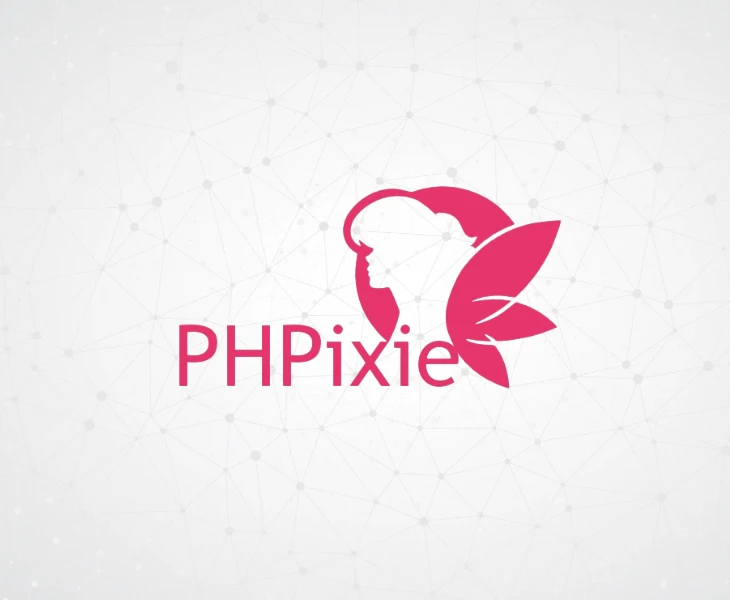
It is a lightweight and high-performing PHP framework that is known for its implicit and speed. Just like FuelPHP, it also follows HMVC architecture and includes essential features like authentication, ORM, and caching. It follows a component-based approach that allows developers to use its modules independently. It is one of the best choices for developers who want to work on small projects and create user-friendly applications.
Now let’s take a look at the key features of PHPixie:
- Its components can be used independently in other projects due to its component-based architecture.
- It improves modularity and efficiency by leveraging HMVC pattern.
- It is lightweight and fast, optimizes speed and improves performance.
- It simplifies user management by utilizing its built-in authentication and authorization system.
Pros and Cons of PHPixie
Below are the pros and cons of the PHP framework. Let’s find them below in the table.
| Pros | Cons |
|---|---|
| Lightweight and fast | Limited community support |
| Simple and easy to learn | Fewer built-in features compared to Laravel or Symfony |
| Uses HMVC architecture for better organization | Not ideal for large-scale enterprise applications |
| Strictly follows PSR standards for clean coding | Less frequent updates and patches |
| Great for small to medium-sized applications | Fewer third-party integrations |
Conclusion
PHP frameworks have taken web development to the next level. With the help of this, web developers can save their time and at the same time code a product that is unmatched. From its security features to its syntax, and well-organized coding, each PHP framework is supreme in its own.
Hire PHP Developers With Devace Technologies
Are you looking to hire PHP developers that can help you scale your project seamlessly? At Devace, we provide quick hiring of PHP developers within 48 hours to help you get started with project right away.
Book a meeting today!
Frequently asked questions
What is the fastest PHP framework?
Phalcon is often considered the fastest PHP framework because it’s built as a C extension, meaning it runs directly in memory rather than interpreting PHP code at runtime. CodeIgniter is another lightweight option known for its speed and efficiency.
Is Django a PHP framework?
No, Django is not a PHP framework—it’s a web framework for Python. If you’re looking for something similar in PHP, Laravel or Symfony might be good alternatives.
How many PHP frameworks are there?
There are dozens of PHP frameworks, but only a handful are widely used. Some of the best ones include Laravel, Symfony, CodeIgniter, Yii, CakePHP, and Phalcon. New frameworks pop up occasionally, but these have stood the test of time.
What is the most used PHP framework?
Laravel is the most popular PHP framework, thanks to its powerful features, ease of use, and large community. It’s widely adopted for web applications, from small projects to enterprise-level solutions.
Is Laravel the best PHP framework?
It depends on your needs. Laravel is the go-to framework for most developers because it’s feature-rich, well-documented, and has a huge ecosystem. But if you need something more lightweight, CodeIgniter or Slim might be better.
What is the most secure PHP framework?
Symfony and Laravel are considered among the most secure PHP frameworks, as they have built-in security features like CSRF protection, encryption, and authentication tools. However, security ultimately depends on how well the developer implements best practices.


